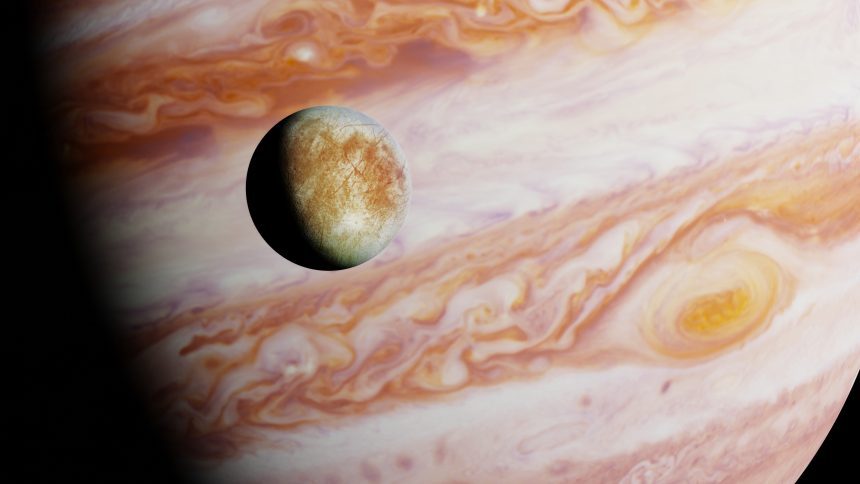Emerging research has cast a new light on Europa, one of Jupiter’s most intriguing moons, suggesting that its oxygen production might be considerably less than what was once hypothesized. This revelation could have profound implications for the likelihood of life existing on this celestial body, which has been a focal point of interest for scientists and astrobiologists due to its hidden subsurface ocean beneath a vast expanse of ice, marking it as a prime candidate in the search for life beyond Earth.
Deciphering Europa’s Oxygen Genesis
Europa’s generation of oxygen is intricately tied to the interactions between its icy exterior and the formidable radiation emanating from Jupiter’s magnetic field, a process known as radiolysis. This phenomenon cleaves water molecules within the ice into hydrogen and oxygen components. Prevailing theories posited that this liberated oxygen might infiltrate Europa’s subsurface ocean, potentially providing a key ingredient essential for sustaining life as we recognize it.
Unveiling Recent Discoveries
Recent investigations, propelled by sophisticated modeling techniques, have revealed that Europa’s actual oxygen output could be markedly lower than prior estimations. This research meticulously considers the unique composition of Europa’s ice and the specific depth at which radiolysis transpires. The findings indicate a more limited penetration of radiation into the ice, culminating in diminished oxygen production rates.
Reevaluating Life’s Potential on Europa
Oxygen, quintessential for life on Earth, particularly for more complex, multicellular entities, sees its potential role in Europa reevaluated in light of these findings. With diminished oxygen production, the prospects for life, if existent in Europa’s concealed ocean, may lean towards more rudimentary microbial life forms, less dependent on oxygen. While this does not entirely dismiss the possibility of life, it recalibrates expectations regarding the diversity of life forms that might be encountered.
The Imperative of Forthcoming Missions
Notwithstanding these insights, Europa’s allure for future exploratory missions remains undiminished. Missions like the European Space Agency’s Jupiter Icy Moons Explorer (JUICE) and NASA’s anticipated Europa Clipper are set to delve deeper into Europa’s mysteries, examining its icy shell, hidden ocean, and the plausibility of life. These endeavors are expected to shed further light on Europa’s ability to sustain life and validate the recent revelations concerning its oxygen production.
Synthesis
The adjustment in our understanding of Europa’s oxygen production injects a new dimension into the quest for extraterrestrial life, tempering expectations about the forms of life that might inhabit Europa while not detracting from its status as a prime candidate for harboring life. The forthcoming exploratory missions to Europa are poised to be pivotal in deciphering the moon’s enigmas and inching us closer to answering the profound question of our solitude or company in the cosmos.








